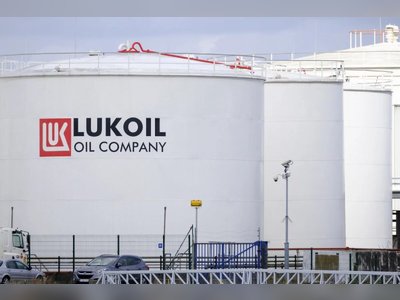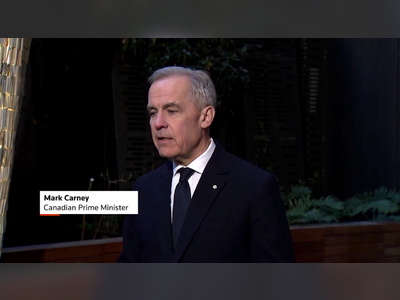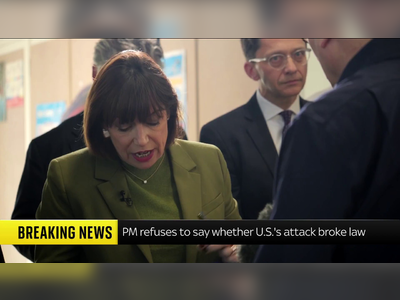
Coffee Prices Skyrocket: A Perfect Storm of Dollar Strength and Suez Canal Disruptions
A 70% surge in coffee prices marks 2025's first major agro-economic shock, driven by currency dynamics and geopolitical tensions.
Coffee prices have surged by an astounding 70% from December 2023 to December 2024, marking the most significant price spike since 1977. Two primary factors are contributing to this dramatic rise: the strengthening of the US dollar and a series of disruptive attacks in the Suez Canal.
According to the International Coffee Organization's recent December bulletin, the financial burden of trading has intensified for leading coffee exporters like Brazil, with the strong dollar inflating costs.
Meanwhile, attacks on the Suez Canal have forced shipping routes to divert around South Africa, causing delays and further driving up shipping costs.
The strong dollar, fueled by US economic policies under newly elected President Donald Trump, compounds the issue.
The anticipation of continued interest rate cuts has bolstered the dollar's value, subsequently impacting other currencies such as the British pound and the euro.
This currency appreciation pressures coffee supply chains to raise prices, ultimately burdening end consumers.
The International Coffee Organization warns that these tensions will persist.
Companies within the coffee sector are under mounting pressure to increase margin deposits to secure against potential losses, putting them at significant financial risk.
In Brazil, two of the largest coffee exporters, Atlântica Exportação e Importação and Cafebras, both part of the Montesanto Group, illustrate the gravity of the situation.
Together, they account for roughly 10% of Brazil’s coffee exports.
Faced with financial strain, these companies sought a 60-day extension from a local judge to negotiate with creditors and stave off bankruptcy.
However, Bloomberg reports that the judge found the requested extension to be "unreasonable," denying their plea despite acknowledging the challenging circumstances.
The financial crunch is exacerbated by operational delays at ports.
According to recent data from the Brazilian Coffee Exporters Council (Cecafé), coffee exporters incurred nearly $2 million in additional storage and fee costs in November.
Inefficiencies at ports and logistical challenges have made extra storage essential, issues also faced by Colombia, another major coffee producer.
Moreover, the geopolitical situation affecting the Suez Canal adds another layer of complexity.
Since late 2023, attacks by Yemen's Houthi rebels on commercial vessels—a retaliatory response to Israeli actions in Gaza—have significantly disrupted traffic through the canal.
Port Watch, an analysis tool developed by the International Monetary Fund and the University of Oxford, reports a 70% reduction in transit volume due to these hostilities.
As shipments are redirected via slower routes, the ripple effect burdens coffee supplies globally.
Coffee exports, particularly bound for Europe, experience delays, with an estimated increase of 4 to 5 million bags in shipments pending delivery, leading to shortages and subsequent price inflations.
According to the International Coffee Organization's recent December bulletin, the financial burden of trading has intensified for leading coffee exporters like Brazil, with the strong dollar inflating costs.
Meanwhile, attacks on the Suez Canal have forced shipping routes to divert around South Africa, causing delays and further driving up shipping costs.
The strong dollar, fueled by US economic policies under newly elected President Donald Trump, compounds the issue.
The anticipation of continued interest rate cuts has bolstered the dollar's value, subsequently impacting other currencies such as the British pound and the euro.
This currency appreciation pressures coffee supply chains to raise prices, ultimately burdening end consumers.
The International Coffee Organization warns that these tensions will persist.
Companies within the coffee sector are under mounting pressure to increase margin deposits to secure against potential losses, putting them at significant financial risk.
In Brazil, two of the largest coffee exporters, Atlântica Exportação e Importação and Cafebras, both part of the Montesanto Group, illustrate the gravity of the situation.
Together, they account for roughly 10% of Brazil’s coffee exports.
Faced with financial strain, these companies sought a 60-day extension from a local judge to negotiate with creditors and stave off bankruptcy.
However, Bloomberg reports that the judge found the requested extension to be "unreasonable," denying their plea despite acknowledging the challenging circumstances.
The financial crunch is exacerbated by operational delays at ports.
According to recent data from the Brazilian Coffee Exporters Council (Cecafé), coffee exporters incurred nearly $2 million in additional storage and fee costs in November.
Inefficiencies at ports and logistical challenges have made extra storage essential, issues also faced by Colombia, another major coffee producer.
Moreover, the geopolitical situation affecting the Suez Canal adds another layer of complexity.
Since late 2023, attacks by Yemen's Houthi rebels on commercial vessels—a retaliatory response to Israeli actions in Gaza—have significantly disrupted traffic through the canal.
Port Watch, an analysis tool developed by the International Monetary Fund and the University of Oxford, reports a 70% reduction in transit volume due to these hostilities.
As shipments are redirected via slower routes, the ripple effect burdens coffee supplies globally.
Coffee exports, particularly bound for Europe, experience delays, with an estimated increase of 4 to 5 million bags in shipments pending delivery, leading to shortages and subsequent price inflations.
Translation:
Translated by AI
AI Disclaimer: An advanced artificial intelligence (AI) system generated the content of this page on its own. This innovative technology conducts extensive research from a variety of reliable sources, performs rigorous fact-checking and verification, cleans up and balances biased or manipulated content, and presents a minimal factual summary that is just enough yet essential for you to function as an informed and educated citizen. Please keep in mind, however, that this system is an evolving technology, and as a result, the article may contain accidental inaccuracies or errors. We urge you to help us improve our site by reporting any inaccuracies you find using the "Contact Us" link at the bottom of this page. Your helpful feedback helps us improve our system and deliver more precise content. When you find an article of interest here, please look for the full and extensive coverage of this topic in traditional news sources, as they are written by professional journalists that we try to support, not replace. We appreciate your understanding and assistance.











